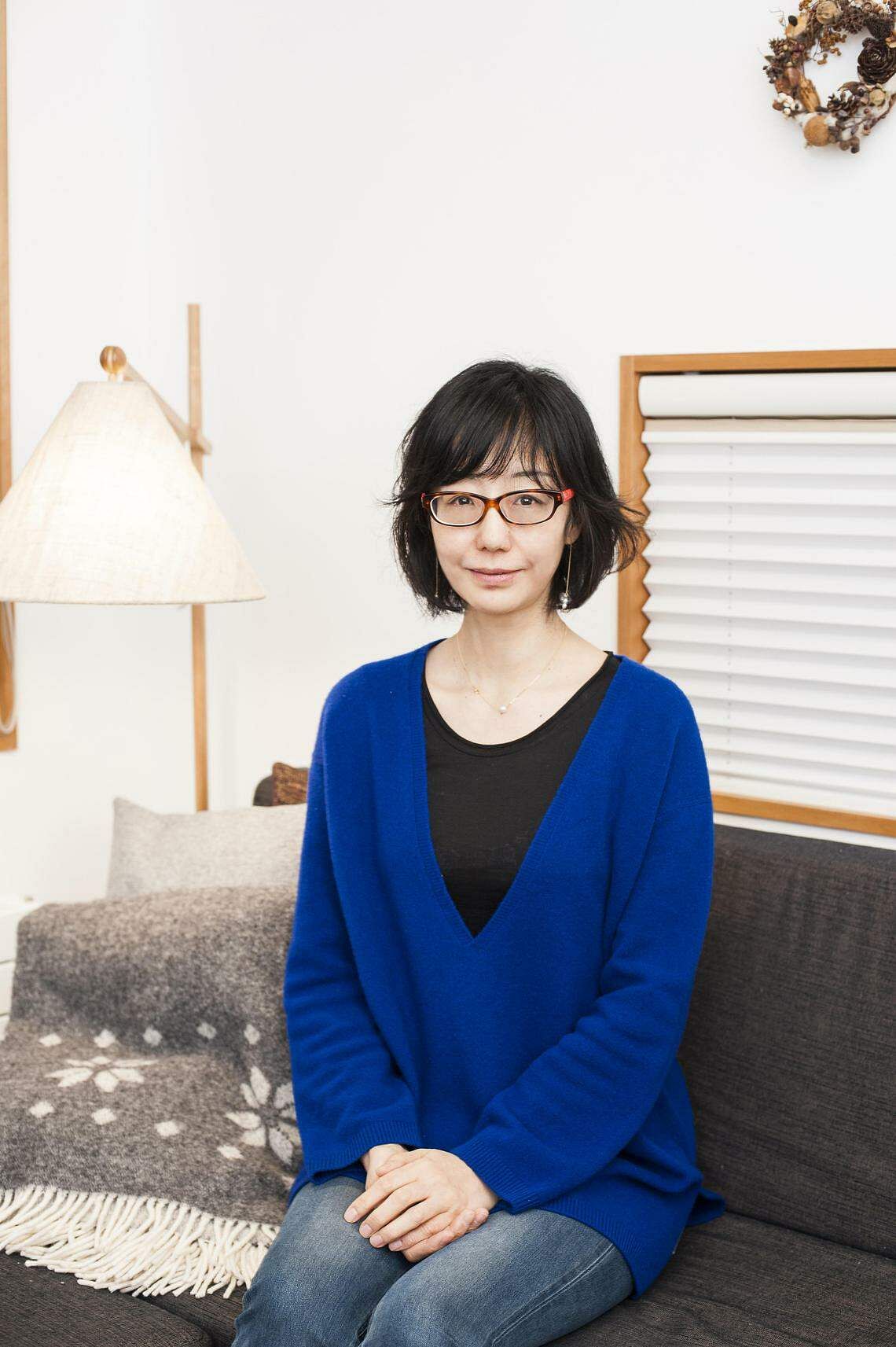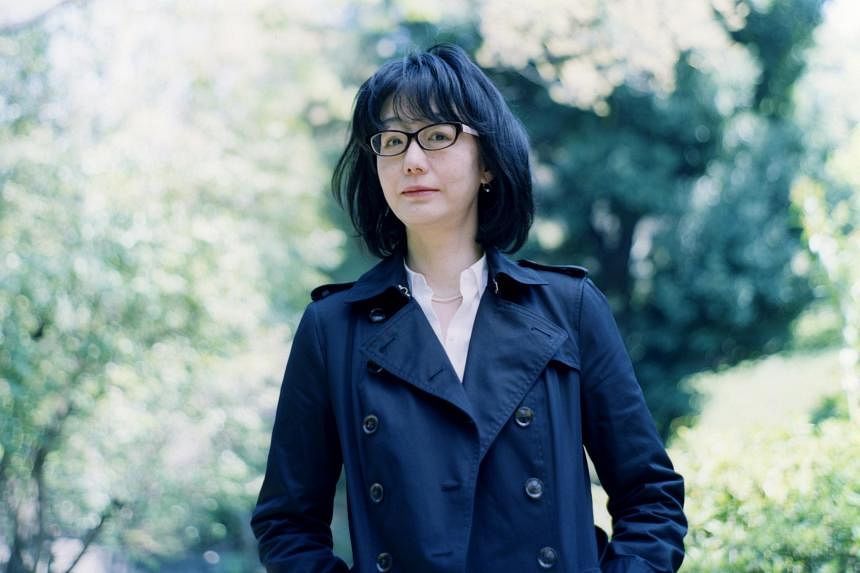TOKYO – Hiromi Kawakami, the acclaimed Japanese writer, does not hesitate for a moment to label the characters in her novels as “strange”.
This description applies to the humans in her poignant down-to-earth stories, as well as the gods and shape-shifting creatures that nonchalantly flit between animal, spiritual and human forms in her genre-bending works.
The 65-year-old, who is divorced with two adult children, says she hopes to capture the enigma of human beings and their relationships with their surroundings through her stories.
“Everyone is driven by strangeness, which is why some actions may not make sense, or seem incorrect, illogical, unsound,” she tells The Straits Times in an interview conducted in Japanese to mark the release of the English translation of Dragon Palace, a collection of short stories first published in 2003.
“In life, all of us are writing our own stories. We meet people, become friends, fight, fall out or drift apart – can everything be easily resolved, understandable?” she says, adding that strangeness is “part and parcel of life”.
We meet in Tokyo’s Kichijoji neighbourhood – where Kawakami lives with her partner and draws inspiration from the area’s vibrant subcultures – over coffee at Coffee Hall Kugutsuso, an old-school cavernous basement kissaten with clay walls, no mobile reception and a sense that time has stopped.
The transportive nature of the establishment – a cave-like tunnel that has remained unchanged since it was opened in 1979 by a local puppetry troupe – seems a fitting backdrop for a conversation with an author known for her otherworldly characters.
Kawakami burst onto the scene in 1994 with her debut short story Kamisama (The God Of Bears), about a narrator who goes on a picnic with a bear who has just moved into their apartment complex.
She then went on to clinch a grand slam of top Japanese literary awards, including the Akutagawa Prize in 1996 and the Yomiuri Prize in 2015.
She notes that, unlike in other fields, gender equality has been achieved in Japanese literature, where women like herself can stand tall alongside male luminaries like Haruki Murakami (Kafka On The Shore, 2002).
Other eminent female voices include Sayaka Murata (Convenience Store Woman, 2018), the unrelated Mieko Kawakami (Breasts And Eggs, 2020) and Yukiko Motoya (Picnic In The Storm, 2018).
Hiromi Kawakami comes across as wispy and soft-spoken, but that veneer belies a conviction that something is seriously wrong with this world. And that belief fuels her to write stories that betray gravity.
She says she is easily affected by real-life events, including acts of man and of God, citing the sarin gas attack on the Tokyo Metro by the Aum Shinrikyo cult in 1995 and the Great East Japan earthquake, tsunami and nuclear disaster of 2011.
More recent incidents are the Covid-19 pandemic and the Ukraine war.
She says: “All these really raise questions. What is mankind? How will the world change? These are things that I cannot stop myself from thinking about, and I think this psyche will seep into my novels.”
She gives by way of example: “I think society is suppressive. But it does not mean that my stories will entirely be about suppression, though the essence of this suppression will be reflected, however indirectly.”
Her first work to be translated into English was Manazuru (published in Japanese in 2006 and translated in 2010), about a woman who finds herself dreamily drawn to the eponymous fishing village after the sudden disappearance of her husband.
Since then, other English-translated titles include The Nakano Thrift Shop (published in Japanese in 2005 and translated in 2016), a slice-of-life take on the interactions between the owner of a bric-a-brac store, his employees and their community.
Strange Weather In Tokyo (published in Japanese in 2001 and translated in 2017) is a wistful take on a May-December romance between a woman in her late 30s and her former high-school teacher, whom she meets by chance one day in an izakaya bar.
And then there is The Ten Loves Of Mr Nishino (published in Japanese in 2003 and translated in 2019), told from the perspective of the 10 women who fall in love with the unfathomable man of the title.
More recently, People From My Neighbourhood (published in Japanese in 2016 and translated in 2020) is a collection of 36 vignettes over 128 pages, flitting between the quotidian and the magical through interconnecting tales.
Dragon Palace is entirely surreal, populated with talking animals, gods and age-defying humans who live beyond the age of 200.
In one scene in Hokusai, the opening story of Dragon Palace, women are objectified and graded by a lecherous shape-shifting octopus and its human companion in the shadows, in an audacious scene that Kawakami recalls made her publisher uncomfortable.
In another, Fox’s Den, a 93-year-old man with a “tiny locust-sized fox face” asks his 53-year-old part-time caregiver to strip naked.
“There are conventional boundaries to what can be written for human stories grounded in reality. But with characters who are not really human, and yet have human-like aspects, these restraints are lifted,” Kawakami says. “There is a lot more room to go in unexpected directions.”
She notes that such creatures were a lot more common in her earlier stories, but she grew to feel “a lot more comfortable writing strange human characters” over time.
Kawakami was born in Tokyo in 1958, reading biology at Ochanomizu University and writing about the reproduction of sea urchins for her graduate thesis. She then became a teacher, but quit when she married and relocated due to her husband’s work.
She became a full-time housewife – a life which she confesses to hating, and which made her wonder about the role of women in society.
It was after her elder son entered primary school – when she was 36 years old – that she wrote Kamisama, winning the Pascal Short Story Prize for Newcomers.
This was followed by the prestigious Akutagawa Prize just two years later, for Hebi Wo Fumi (1996, literally translated as Tread On A Snake; translated in English in 2017 as Record Of A Night Too Brief), about a shop assistant who steps on a snake that morphs into a woman who cooks her food, waits on her and eventually calls itself her mother.
Kawakami would eventually sit on the judging panel for the biannual Akutagawa Prize.

Rather than feeling pressure over her successes, she says she finds it more stressful judging for such a prestigious award that she knows can make or break careers.
But the joy comes from discovering new voices, as she sings praises for 2023’s first recipient, Hunchback by Sao Ichikawa, who also became the first person with disabilities to win.
The wheelchair-using 43-year-old relies on a respirator, and harnesses irony and humour in a story about a disabled woman who derides herself as a “hunchbacked monster”.
As for Kawakami, her latest novel also cuts close to home.
Published in August 2023 in Japanese, Koi Wa Hakanai, Aruiwa, Puru No Soko No Suteki (literally Love Is Fleeting, Or The Steak At The Bottom Of The Pool) has a protagonist just like herself – a writer in her mid-60s – and is told in the first person.
She laughs off a suggestion that the book is a memoir, but says that people their age are an under-represented demographic in novels.
“And to be frank, if I were not in my 60s, I would not know how it is like to be this age. We are thought to be mature, but are we really that mature?” she says. “This is not a documentary, but it does reflect my observations and feelings.”
As we part, we walk through Kichijoji’s Harmonica Alley, which began as a flea market after World War II and still retains its ambience with a narrow warren of izakayas and small shops.
“I often get asked what I most want to write about. And it really is about the ‘ordinary’, though this is not a given, and differs between people. In this exploration of the ‘everyday’ comes the strangeness,” she says.
“People are forgetful, and the novel is a timeless, written form that not only captures the essence of an era, but can also attain new meanings for a new age.”


